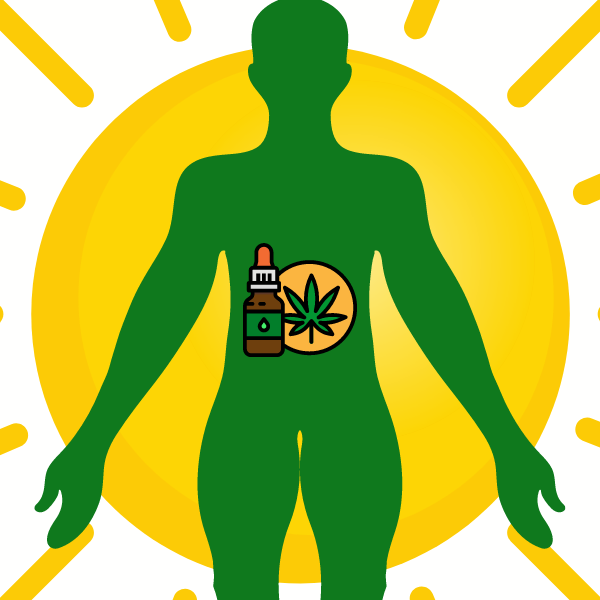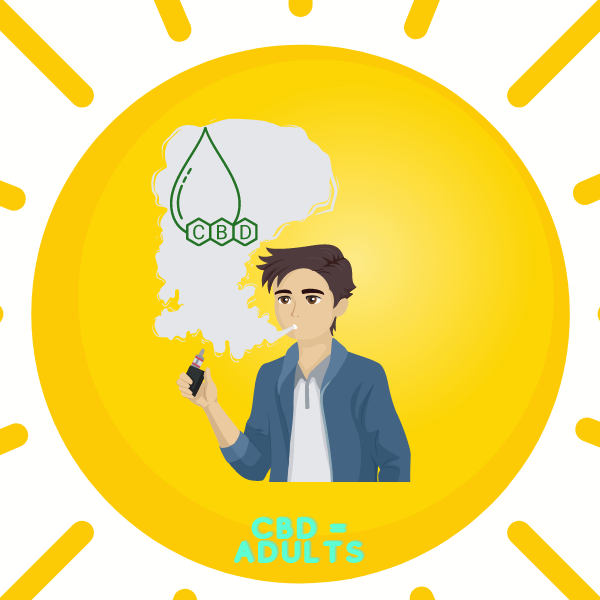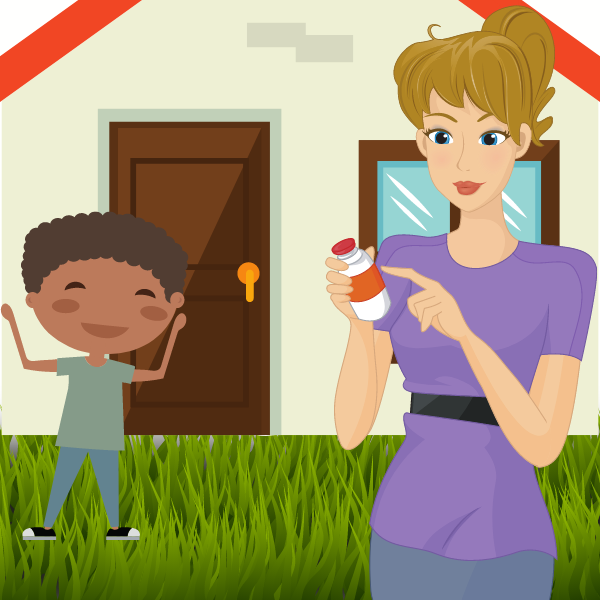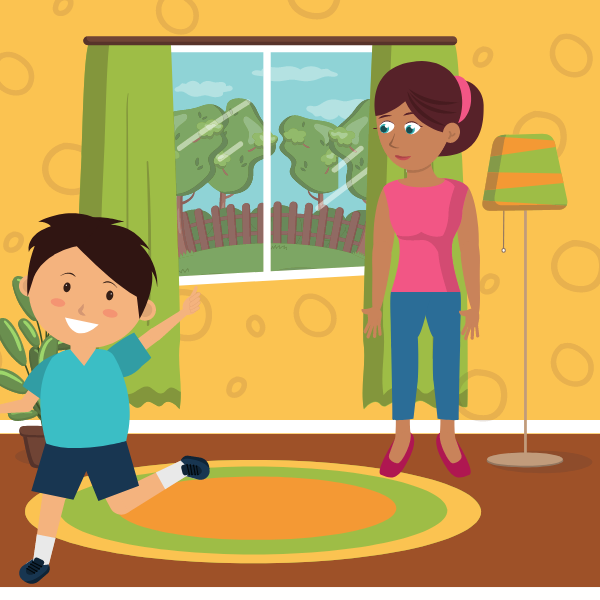CBD Oil and Children Information for Parents
Accessible in the form of vaping, oils, lotions, cocktails, coffee, gums and more, CBD has been advertised as a cure for symptoms as far-reaching as chronic pain, asthma, migraines, depression and ADHD.
What Exactly is CBD?
Nowadays, CBD is everywhere. From corner stores and cafes to medical marijuana dispensaries, it is marketed for its reputable power to ease pain and make people feel comfortable.
Although CBD—full name cannabidiol—is derived from hemp or marijuana, it does not produce THC, a marijuana chemistry that has medicinal and psychoactive benefits, so it does not leave you feeling high.
Accessible in the form of vaping, oils, lotions, cocktails, coffee, gums—you describe it—CBD has been advertised as a cure for symptoms as far-reaching as chronic pain, asthma, migraines, depression and ADHD. Amazingly, it had gone viral when Consumer Reports had released manuals on how to buy CBD and advice on how to use CBD safely.
As study continues to explore the great potential of CBD to better cure a diverse range of physical and mental illnesses, many parents ponder whether CBD oil could be a better medication for their ailing children or not. Is CBD oil good for children? We'll look at what CBD oil is, how it works with human body, and what parents should know when contemplating CBD oil as a care choice for their infant.

What is CBD Oil and how it interacts with the body?
CBD is the second most popular cannabis plant ingredient, right after THC, the cannabinoid mostly famous for the psychoactive and intoxicating medicinal properties of plants. According to the Mayo Clinic in this article about CBD, a prescription of CBD oil is considered an effective anti-seizure medication. However, further research is needed to determine CBD's other benefits and safety.
Cannabinoids or Phytocannabinoids, that are extracted from cannabis plants, connect with our bodies through the endocannabinoid system where they interact with cannabinoid receptors and are torn down by enzymes. CBD generates beneficial benefits by modifying connections with cannabinoid receptors. These receptors are responsible for preserving homeostasis or the body's mechanism of maintaining the smooth functioning of its essential systems. CBD is also known to associate with more than 60 other tissues in brain and body.
The relationship of CBD oil with human body through these receptor pathways is diverse, that is why the potential benefits of CBD differ greatly, both in terms of effectiveness and kind of effect. The chemical composition of the different varieties of CBD oil, including the actual dosage inside the product, will also change the potency and possibility of noticeable results.
Is CBD oil safe for infants and kids?
Because the potential repercussions of CBD oil vary widely, it is impossible to determine accurately whether CBD oil will be safe for children or not. However, study has shown that children can safely take regular doses up to a certain amount relative to their body weight. Adverse effects of CBD are rare, except at high doses, with sleep deprivation being the most frequent. Several studies have used CBD in the successful management of childhood epilepsy, developmental disorders, and perinatal brain damage in infants. In addition, the only CBD therapy approved by the Food and Drug Administration deals with two unusual cases of childhood epilepsy.

The impact of CBD oil on adults vs. children
The degree to which the results of CBD oil vary between adults and children remains widely under-researched. Since the process of CBD absorption differs considerably from person to person, and there is also little data on pediatric use of CBD, it is often difficult to pin down specific variations in reaction between adult and child patients.
What parents should recognize about CBD
Dosage
According to the nature of cannabinoids and the nuanced manner in which they bind with the body, there is no one-size-fits-all solution to dosing CBD oil for kids or adults. Although reports show that it is almost difficult to take an unhealthy amount of CBD, the safest way is to consult with your child's physician for advice and guidance. Children who take CBD should be supervised.

Read labels before buying CBD oil for your Kid
Watch for signs of a reputable brand on product labels when choosing a CBD oil product for civilian treatment and look for buzzwords of little scientific validity or definition, such as "pure," "natural" or "organic." In the U.s, the U.S. Food and Drug Administration (FDA) officially does not authorize CBD oil companies to make claims for curing or treating illnesses and disorders. All legitimate CBD products do have Certificate of Analysis available on the manufacturer's or brands’ website.
Most trustworthy CBD oil products would have the following product label information:
- Portion of active CDB per serving
- Supplement Facts Panel, among other components
- Net weight
- Name of maker or dealer
- Suggestion to use
- Differentiation as isolate, full-spectrum, or broad-spectrum
- Batch code or date code
Safe Dosage for Children
When dosed appropriately, relatively stable CBD ingestion methods include drops, capsules and tinctures. CBD oil can normally be supplied to children orally, as compared to adult-use approaches such as vaping and burning high-CBD flowers. Epidiolex is now a cannabis-derived oral drug with CBD as an active substance approved by the FDA to be used in the treatment of epileptic seizure disorders in patients 2 years of age and older.
Although CBD and THC have been shown to improve the medicinal benefits of one another, this is illegal for someone younger than 21 years to use THC for medical reasons, although this differs from area to area. Exceptions are made to the advice of a physician or an accredited health provider and parental consent for children younger than 21.
In addition, THC persists a Schedule I drug under the Federal Controlled Substances Act, and only hemp-derived CBD developed under the Farm Bill 2018 is lawful.

CBD and Kids Conclusion
Kids, like adults, can benefit from CBD supplements. However, the necessary dosage should be much lower and more accurately dispensed.
Conditions such as ADHD, diabetes, autism, nausea, insomnia and anxiety are often problematic for young children. These are all the disorders that could benefit from CBD.
It is recommended to opt for low-power CBD oil (300 mg or 600 mg per oz) or to opt for CBD-infused gums.
Related Blog Posts
CBD Products for Pets and Parents to Know
Blog Categories
- Home
- Industry News
- Vaporizer Reviews
- Dry Herb Vape Tutorials & FAQ
- Wax Pen Vape Tutorials & FAQ
- Oil Vape Pen Tutorials & FAQ
- Vaping Guides & Information
- Dabbing FAQ & Guides
- Smoking Pipe Tutorials
- NY Vape Shop Listicles
- Vape Pen Comparisons
- Vape Shop How To Articles
- Vape Shop Buyers Guide
- Vape Pen Basics
- Herb Grinder Reviews
- Dry Herb Vaporizer Reviews
- Oil Vape Pen Reviews
- Wax Pen Reviews
- Box Mod Vape Reviews